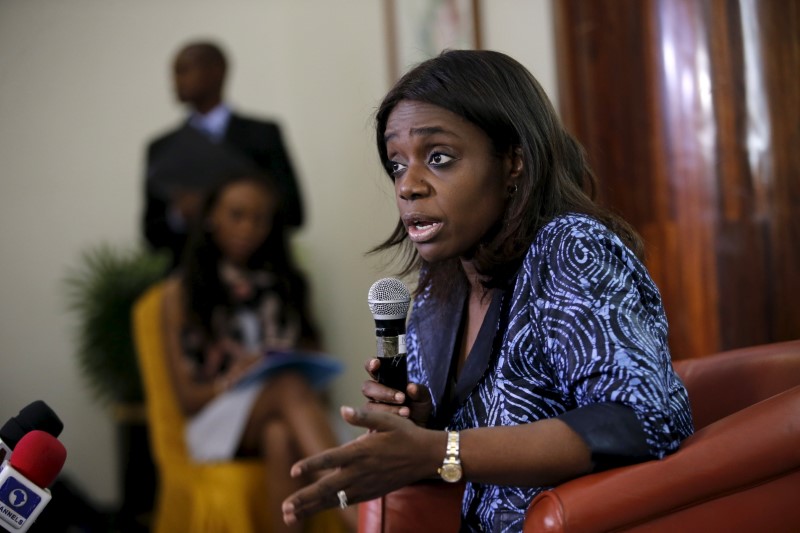By Felix Onuah
ABUJA (Reuters) - Nigeria must not borrow more to fund its budget and should instead raise money it needs by other means, the country's finance minister said on Tuesday, calling into question planned foreign loans of $2 billion from lenders like the World Bank.
Africa's largest economy is in its first recession in 25 years, and had planned to borrow extensively from overseas to fund a record budget aimed at helping the country spend its way out of its economic doldrums.
But plans for lenders like the World Bank and African Development Bank to loan at least $2 billion to Nigeria have been stalled for over a year as international organizations' frustrations mounted at the country's refusal to impose key fiscal reforms such as allowing its foreign exchange rate to float freely.
Finance Minister Kemi Adeosun's comments, made while speaking at a business forum in the capital of Abuja, suggest that Nigeria will no longer seek such loans, or an additional $1.5 billion it had planned to raise from international debt markets.
"We cannot borrow anymore, we just have to generate funds domestically enough to fund our budget. Mobilize revenue to fund the necessary budget increase," she said.
In May, the head of Nigeria's budget office said the country has a shortfall of $7.5 billion for its 2017 budget expenditure, and said that would be addressed with $3.5 billion from the aforementioned loans and debt.
The government also planned to raise $4 billion from the local debt market, he said at the time.
Nigeria's presidency signed off on its record 7.44 trillion naira ($24.39 billion) budget for 2017 in June, after numerous delays.

The plan projects a deficit of 2.21 trillion naira, implying a deficit equivalent to 2.18 percent of Nigerian gross domestic product.